Key Takeaways:
-
Explore the intricacies of paying credit card bills by understanding the billing cycle, grace period, and due date for better finance management.
-
Find out why paying credit card bills on time is crucial to avoid late fees, interest charges, and negative impacts on credit scores.
-
Learn the benefits of paying credit card bills early, including reduced interest charges, low credit utilization ratio, and enhanced credit scores.
-
Discover tips such as setting up automatic payments and customizing due dates to manage credit card bills efficiently.
Everyone enjoys shopping and swiping their credit cards for every purchase. But sometimes, the real problem arises when you don’t end up paying your credit card bills by the due date.
Don’t worry, you are not alone, as more than 70% of Americans don’t pay their complete balance by the due date. Key reasons? Well, either they are running low on cash or already have a bunch of other important bills to clear.
While managing your money, one big question always stands out: What is the best time to pay my credit card bill? It’s like a tricky game where timing is the key, and every choice you make affects your finances.
Should you pay early to avoid extra charges or wait until the deadline for more flexibility? Let’s explore the maze of credit card billing cycles together and discover how to handle your credit card bill like a pro and take charge of your money.
Learn how to pay a credit card bill, the importance of the due date, the perks of paying your credit bill early, the best time to pay your card bill, and selecting the most suitable payment methods aligned with your financial objectives in the long run.
How do credit card payments work?
Understanding how credit card payments work can be confusing since they’re not always due right at the end of the billing cycle. You often have a month or more before your payment becomes due. Here’s a breakdown of how the credit card payment cycle typically operates:
-
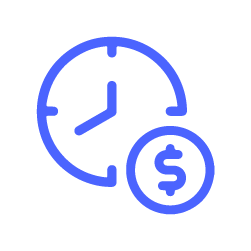 Billing cycle
Billing cycleThis period usually spans 28 to 31 days, marking the timeframe when you make purchases using your credit card.
-
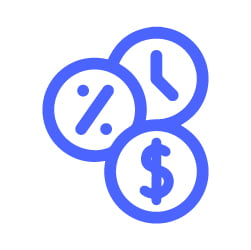 Grace period
Grace periodIf your credit card has a grace period, your payment isn’t due for 21 to 55 days after the billing cycle ends. This grace period provides additional time to make your payment without incurring any interest charges.
-
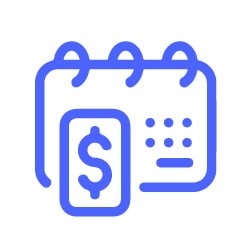 Due date
Due dateIt signifies the deadline by which you must pay at least the minimum amount due. The due date remains consistent each month, occurring approximately three weeks after the statement date, typically occurring on the same date.
It’s crucial to pay at least the minimum by this date to avoid penalties or late fees and maintain a positive credit history.
Credit card payments function through a multi-step process. When you make a purchase, the merchant sends your transaction details to your card issuer, who then authorizes the payment.
At the end of your billing cycle, the issuer generates a statement detailing your purchases and any applicable fees or interest charges. Then, you need to make a minimum payment by the due date to avoid late fees.
If you carry a balance, you accrue interest on the remaining amount. Paying your statement balance in full avoids unnecessary interest charges.
Your creditor is required to make your bill available to you at least 21 days before the due date, allowing you ample time to review your charges and prepare for payment.
When is the best time to pay my credit card bill?
Determining the best time to pay your credit card bill can seem daunting, but there’s a straightforward answer applicable to all credit card users.
The right time to pay your credit card bill is on time, i.e., before the due date, to avoid any late fees and interest charges.
One must aim to pay the full statement balance to prevent accruing interest.
Pay your bill in full and on time every month because carrying credit card debt beyond the billing period’s end typically doesn’t work well for credit scores.
Continually carrying a balance from month to month can prove costly, particularly with interest rates soaring above 20%.
Another option is paying early, as paying late is never good. Early bill payment reduces your credit utilization ratio, positively impacting your credit score.
This proactive approach safeguards your finances, avoids penalties, and contributes to building a healthy credit history.
Knowing what is the best time to pay my credit card bill involves considering several factors that impact your financial health and credit score.
Here’s what to keep in mind:
-
Why paying on time is important
Your credit card payment history significantly influences 35% of your FICO credit score. Consistently making on-time payments is vital for establishing and maintaining good credit.
Missing or delaying payments not only harms your credit score but can also incur costly consequences.
Late payments result in late fees and increased interest rates, often reaching penalty APR levels. Most credit cards provide a 21-day grace period before applying interest charges to new purchases.
By adhering to this, you can avoid accruing interest and maintain financial discipline.
-
Why paying early can be beneficial
Paying more than the minimum due and paying early can also enhance your credit utilization ratio, the second most crucial factor in determining your credit score.
The credit utilization ratio reflects the amount of available credit you’re using compared to your total credit limit.
Maintaining a low credit utilization ratio by using a small portion of your total credit suggests responsible credit management and can positively impact your credit score.
Reducing this ratio by making payments, even multiple times per month if desired, can positively impact your credit score.
-
Meeting the minimum due by the due date
It is crucial to pay at least the minimum amount due by the monthly due date. This practice maintains your good standing with the credit card company and helps avoid penalties or negative reports to credit bureaus due to late payments.
So, whether you decide to pay on time or early, prioritizing timely and proactive credit card payments is essential for financial well-being and good credit scores.
Why Credit Card Due Dates are Important?
Credit card due dates are crucial because missing them can result in financially harmful consequences. Failing to pay at least the minimum amount due by the due date can lead to penalties, including late fees and interest charges.
Timely paying bills with credit card or cash helps maintain your creditworthiness and prevent negative impacts on your credit score.
For instance, if your due date is the 20th of each month and you forget to pay until the 25th, you may incur late fees and interest, damaging your credit history.
The card issuer may impose a late fee, potentially as high as $40, depending on their policy and the frequency of late payments. Moreover, missing the due date can adversely impact your credit scores.
Payments over 30 days late are reported to credit bureaus, damaging your payment history, which is essential for credit scores. Late payments can linger on your credit report for up to seven years, affecting your financial standing for an extended period.
Consistently meeting due dates showcases responsible financial management to creditors and enhances your ability to access favorable credit terms in the future. Thus, staying vigilant about due dates ensures financial stability and strengthens your credit standing.
Is it good to pay your credit card early?
Paying your credit card bill early can be advantageous for several reasons, including saving money and enhancing your credit profile.
Firstly, it helps you avoid late fees and penalties when you miss the payment due date. By settling your balance beforehand or promptly, you eliminate the risk of forgetting to pay on time, ensuring you meet your financial obligations on time.
Moreover, early payments can reduce the amount of interest you accrue on your outstanding balance. Making credit card bill payments early reduces the average daily balance, resulting in lower interest charges over time. This can save you money in the long run, especially if you carry a balance from month to month.
Additionally, paying your credit card early can improve your credit utilization ratio, the amount of credit you use compared to your total available credit. Lower credit utilization ratios demonstrate responsible credit management.
Since most creditors report balances at the end of each billing cycle, paying early increases the probability of score improvement. It potentially leads to better loan terms and interest rates in the future.
Finally, early payments give you peace of mind and greater control over your finances, allowing you to budget more effectively and avoid last-minute financial headaches. Overall, paying your credit card bill early can lead to significant savings, credit score improvements, and enhanced financial well-being.
When to pay your balance early?
Paying your credit card balance early can be strategically beneficial in various scenarios. Majorly, it can positively impact your credit score, especially your credit utilization ratio, and mitigate the high-interest rate on the balance amount.
Ideally, it’s best to keep this ratio below 30%, as higher utilization can harm your credit scores.
-
Managing Credit Limit for Large Purchases
If you have a large purchase planned or anticipate a significant expense, paying your balance early can free up your credit limit, ensuring you have sufficient available credit when you need it.
This is particularly useful if you make additional purchases or wish to cover unexpected expenses without exceeding your credit limit.
-
Improving Credit Scores with Early Payments
Secondly, to enhance your credit scores, paying earlier in the billing cycle reduces your credit utilization rate, a significant factor in credit scoring.
Lower credit utilization ratios can positively impact your credit score, demonstrating responsible credit management and potentially leading to better loan terms and interest rates in the future.
Multiple payments throughout the month or aligning payments with payday can effectively manage balances and optimize credit utilization.
-
For Reducing Interest Charges
Early payments can also mitigate the impact of interest charges on your outstanding balance. For those carrying a balance, settling it ASAP minimizes interest charges accrued from the previous month, preserving the grace period for new purchases.
When it comes to managing your credit card bill, timing is very important, especially with online retail giants like Amazon. Settling your Amazon credit card bill payment before the due date can prevent unnecessary fees and interest charges.
Whether you pay off your balance in full or make partial payments, staying ahead of your due date is crucial. Setting up automatic payments or manually scheduling payments before the due date helps you stay on top of your credit card bills effortlessly.
-
Effective Financial Management
Additionally, paying your balance early can help you manage your finances more effectively by reducing the risk of overspending or carrying a high balance from month to month.
By settling your credit card balance ahead of schedule, you can avoid the temptation to accumulate additional debt and maintain better control over your spending habits.
Credit bureaus only receive updated account information, including balances and credit limits, once a month on the reporting date.
If your balance is high when this information is reported, even if you pay it off shortly after, it could negatively affect your credit score. To prevent this, consider paying your balance early before that.
Overall, paying your credit card balance early can provide financial benefits, help you manage your finances more effectively, and improve your creditworthiness in the long run.
When to make multiple payments on your credit card bill?
Making multiple payments on your credit card bill can be beneficial in many ways, depending on your financial situation and goals. Here is how:
-
Effectively Managing Credit Utilization
If you regularly use a significant portion of your available credit, especially while getting close to your credit limit, making multiple payments throughout the billing cycle can help keep your credit utilization ratio low.
By reducing your balance before the statement closing date, you ensure that the reported balance to credit bureaus remains low, which can positively impact your credit score.
-
Better Budgeting and Cash Flow
For someone who wants to manage their expenses more effectively or has irregular income streams, making multiple payments can help you stay on top of your finances.
Rather than waiting until the due date to pay your entire balance, making small, periodic payments when funds are available can help you avoid carrying a high balance and accruing significant interest charges.
-
Avoiding Interest Charges
Making frequent payments can really help you to minimize interest charges on high-interest purchases.
When you pay off specific transactions immediately or shortly after making them, you reduce the balance subject to interest, potentially saving money in the long run.
What Happens if You Don’t Pay Your Credit Card Bill?
If you fail to pay your credit card bill, you may have to face several consequences, some of them include:
-
Late Payment Fees
Credit card issuers typically charge late payment fees for missed payments, ranging from $25 to $40 or more, depending on the issuer and the amount overdue.
-
Interest Charges
Unpaid balances accrue interest, often at high rates. For example, with a $1,000 balance and a 20% APR, you could accrue $200 in interest annually, or roughly $16.67 every month.
-
Negative Impact on Credit Score
Late payments can significantly damage your credit score. Payment history accounts for 35% of your FICO score, and even one missed payment can lower it by several points.
-
Penalty APR
Persistent late payments may trigger penalty APR, which can be much higher than the standard APR, further increasing the cost of carrying a balance.
So, if you miss a $200 payment on a credit card with a 20% APR, you will accrue $40 in interest over a year. However, if you continue to miss payments, the interest compounds, and the total debt quickly escalates, potentially leading to financial distress and further credit score fall.
What happens if you miss a credit card payment?
When you fail to pay your credit card bill, several penalties may be imposed, typically escalating based on the duration of neglect – each more severe than the last.
Here’s a breakdown of potential penalties when you miss a payment based on the number of days past the due date:
| Days Past Due | Penalties |
|---|---|
1 – 30 days |
– Late fee up to $40 – Suspension of interest rate grace period for next billing cycle – No promotional interest rates |
30 – 60 days |
– Each missed payment reflected on credit reports for 7 years. – Possible drop in credit scores. – Additional late fees up to $40 for each subsequent 30 days late. |
60 – 180 days |
– Application of penalty APR |
180+ days |
– Account may be closed – Loss of available credit – Potential additional damage to credit scores |
Each credit card issuer sets its own fee structures and penalty APRs so actual penalties may vary. However, missing even a single payment can result in late fees, increased interest rates, and damage to your credit score.
It’s crucial to make timely payments – even the minimum amount if not full, or communicate with your issuer if you anticipate difficulty meeting payment obligations to avoid these consequences.
How can I pay my credit card bill?
While managing your credit card finances, understanding how to pay credit card bills is crucial. You can pay your credit card bill through various methods, offering flexibility and convenience.
Regardless of the method you choose, always ensure timely payments to avoid late fees, interest charges, and potential damage to your credit score.
And if you are wondering, Can you pay bills with a credit card? The answer is absolutely YES!
-
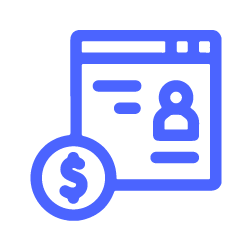 Paying Credit Card Bill Online
Paying Credit Card Bill OnlineMost people opt for online payments, transferring funds from a bank to a credit card account. Credit card issuers provide online banking portals or mobile apps where you can securely make payments.
Log in to your account, navigate to the payment section, and follow the prompts to enter your payment details.
Online payments are typically processed quickly and offer the convenience of scheduling auto payments in advance, a convenient option to ensure timely payments.
‘What bills can you pay with a credit card?’ is a common question among consumers seeking to maximize the benefits of their credit cards. The answer varies depending on the receiver’s payment policies.
Generally, you can pay a wide range of bills using a credit card, including utility bills such as electricity, water, gas, internet & cable, subscriptions, insurance premiums, and even medical bills, providing excellent rewards for consumers managing their expenses.
-
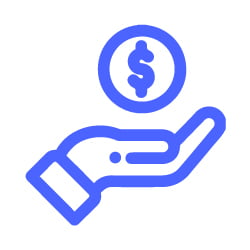 Paying Credit Card Bill with Cash
Paying Credit Card Bill with CashAlthough less common, some credit card issuers may allow you to pay your bill with cash. You can do this by visiting a branch of the issuing bank or a designated payment location.
It’s essential to check the issuer’s guidelines beforehand to determine if cash payments are acceptable, along with any associated fees.
-
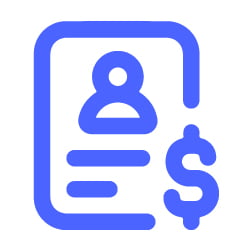 Paying Credit Card Bill over Phone
Paying Credit Card Bill over PhoneAnother option is to pay your credit card bill by phone. Many issuers offer automated phone systems or customer service representatives who can assist you in making a payment.
Before calling, have the bank account number ready from which you want the payment deducted.
Simply, call the number provided on the back of your credit card, follow the prompts, and provide the necessary payment information.
It is a reliable option, especially if you prefer speaking with a representative.
Can you pay a credit card with another credit card?
Although it’s technically feasible to settle one credit card balance using another by obtaining a cash advance, this approach is not something we would recommend.
Cash advances tend to be extremely costly, as they imply cash advance fees coupled with steep interest rates.
Moreover, any cash withdrawn from a credit card translates into fresh debt.
When in a situation where you are unable to settle your credit card debt without resorting to borrowing from another card, it’s imperative to explore viable debt relief avenues.
In most cases, you cannot directly pay a credit card bill with another credit card.
However, some financial institutions may offer balance transfer services, allowing you to transfer debt from one credit card to another.
While this may provide temporary relief by consolidating debt onto a card with a lower interest rate or promotional offer (0% intro APR for a longer period), you must weigh the potential benefits against any associated fees or interest charges.
Also, always opt for the best balance transfer credit cards, offering 15-18 months of intro APR.
Additionally, continually transferring balances without addressing underlying spending habits and financial management may lead to long-term debt accumulation and financial strain.
Should you carry a balance on your credit card?
It’s generally advisable to avoid carrying a balance on your credit card whenever possible, as doing so can prove to be quite costly.
Carrying a balance means accruing interest charges, often at high rates, which can lead to substantial long-term debt.
Furthermore, carrying a balance means forfeiting your card’s grace period.
Most credit cards provide a 21-day interest-free grace period on purchases, applicable only if you pay your statement balance in full each month.
Failing to do so results in interest charges not only on your outstanding balance but also on all new purchases made with the credit card.
You must aim to pay off your credit card balance in full each month to avoid interest charges and maintain financial health.
If carrying a balance becomes necessary due to unforeseen circumstances, prioritize paying it off as soon as possible to minimize interest costs and prevent debt from escalating.
Hence, you should NOT carry a balance on your credit card. Utilizing credit responsibly and paying balances in full helps build a positive credit history and fosters sound financial habits.
Make sure to make the minimum payment to avoid unnecessary penalties.
When card issuers report your balance to the bureaus?
Credit card issuers typically report your credit card balance to the credit bureaus once a month, usually around your statement closing date i.e. when your billing cycle ends and a new statement period begins.
However, the specific reporting date can vary among card issuers. Some may report balances on the statement closing date, while others may report on a specific day of the month.
Additionally, certain credit card issuers may report more frequently, such as multiple times per month. It’s essential to check with your card issuer to determine their reporting time, as this can impact your credit utilization ratio and, consequently, your credit score.
When should you change your bill due date?
Changing your bill due date can be a strategic move based on your financial circumstances. It can offer greater flexibility and convenience in managing your finances.
Whether you’re looking to sync your payments with your payday or streamline your budgeting process, understanding when and why to make this adjustment can help you stay on top of your bills and avoid unnecessary fees or missed payments.
First, consider aligning it with your payday to ensure you have sufficient funds when the payment is due, preventing late fees and adverse effects on your credit score.
If you’re facing fund challenges around your current due date, shifting it to a time when you typically have more disposable income can be advantageous.
Secondly, if you have multiple bills due around the same time, adjusting your credit card due date to spread out payment obligations throughout the month can help you manage your cash flow more effectively.
It can be especially beneficial if your current due date coincides with other major financial commitments.
Lastly, when you’re working on improving your credit score and managing multiple credit cards, synchronizing due dates can simplify bill management and reduce the risk of missing payments.
Before making any changes, communicate with your card issuer to understand the process and ensure a smooth transition.
Best Tips for Paying your Credit Card Bill on Time
Credit cards come with enticing rewards and perks, but mishandling them can lead to financial trouble.
Paying your credit card bill on time is essential for maintaining good financial health and avoiding unnecessary fees & interest charges.
Here are some effective strategies to effectively manage your credit card bills:
By following these tips and incorporating them into your financial routine, you can establish responsible payment habits and effectively manage your credit card bills to avoid late payments and associated penalties.
For those still wondering when should I pay my credit card bill, it’s best advised to pay off your balance completely each month.
Enjoy Zero Interest on Credit Cards
Always follow the golden rule of thumb to pay your credit card bill in full before the due date for zero interest on credit cards. This simple principle can help you avoid the high-interest charges, impact on credit score, and unnecessary late fees.
Also, you could face significantly higher interest rates on your future mortgages or loans once the negative consequences take a hit on your credit score.

There are multiple options to pay for your credit card statement each month, but most of us just pay the minimum balance- as low as $25, for a sigh of relief.
You don’t want to pay interest on your balances to the extent possible if you make a complete credit card payment.
We often overlook the accrued interest that results in years of debt. Some credit card issuers now display the due amount as only the minimum due, don’t get swayed by it.
Settling the credit payment in full by its due date or even sooner- when you make a purchase- is the best time to pay credit card bill because the balance gets reported to the credit bureaus soon after the due date, which can adversely affect your credit score.
Benefits of Autopay
Are you tired of keeping up with due dates for your multiple credit card bills? Well, Consider setting up Autopay- a free feature offered by most banks/issuers that automatically debit payments due from your checking account, and you never miss a credit card payment.
Credit card Autopay also saves you from late fees by ensuring you don’t forget to pay and spares you from all the headaches.

Earn Rewards and benefits without any Additional Cost
Credit cards are the universally accepted model of payment that offers a wide array of benefits such as easy payment, fraud/insurance coverage, as well as building credit, etc.
But perhaps earning rewards like Credit card points, Best cashbacks, miles, and discounts without any additional cost is the most lucrative perk.
You can redeem these credit card rewards for travel, statement credits, gift cards, online shopping, dining, etc. After all, you don’t want to pay late fees/interest that reduce the net value of credit card rewards you get.
Conclusion
While many individuals prefer the convenience of online credit card payments, some leverage auto-pay to streamline the process.
However, not everyone knows strategies to expedite balance clearance, minimize interest costs, and enhance credit ratings.
Credit card statements have a monthly payment deadline. While you might assume this is the date by which you should settle the bill, there are advantages to taking a more proactive approach.
To have a robust credit history, one must avoid unnecessary expenses like late fees and accrued interest. Thus, you must consider clearing your entire balance ahead of the deadline.
While promptly paying off a bill might seem like the prudent choice, it’s not always necessary, and determining the ideal timing—like many credit card decisions—depends on individual financial circumstances.
At the very least, it’s essential to meet the due date for your credit card bill each month.
However, in certain scenarios, paying the bill earlier can be advantageous. This is because the reported balance to credit bureaus can directly impact your credit scores.
You should pay your credit card bill by its due date every month because a Credit card can break or make your financial future.
So no matter the circumstance, Pay in Full, On Time! You can enjoy many benefits, from earning the best credit card rewards to building a great credit score- if used effectively.
Boost your rewards by downloading the Free Uthrive App that maximizes your credit card points on everyday spending.
Our innovative approach suggests the ideal card for your purchase and even notifies the best credit card based on your location.
FAQs
What is the best day to have a credit card payment due?
The best day for a credit card payment due is one that aligns with your payday or when you have surplus funds to avoid late fees and maintain a good credit score.
How does the credit card billing cycle work?
The credit card billing cycle starts on the card activation date with a zero balance, incorporating transactions, fees, and charges made throughout the cycle.
Payments and adjustments are then applied before generating the final bill.
Any transactions occurring after the cycle’s end are reflected in the subsequent statement.
This process repeats every month, affecting the due date and payment calculation for each billing period.
When should I pay my credit card to avoid interest?
To avoid any interest, you must pay your credit card bill before the due date, ideally in full.
Interest accrues on the outstanding balance after the grace period, typically 21-25 days from the statement date.
What is the 15/3 rule?
The 15/3 rule involves splitting credit card payments into two each month while paying the credit card company – 15 days before the statement date and three days before the due date.
It is an excellent credit card bill payment strategy.
For instance, with a $5,000 limit and $3,000 in monthly purchases, you’d pay $1,500 halfway through the cycle and the rest before the due date.
This practice ensures a lower credit utilization ratio, boosting your credit score.
Should I pay off my credit card in full or leave a small balance?
Paying off your credit card in full is best advised to avoid high-interest charges.
Leaving a small balance doesn’t benefit your credit score and only incurs unnecessary interest expenses.
Does making two payments a month help my credit score?
Making two payments in a month can help lower your credit utilization ratio, positively impacting your credit score.
It’s beneficial if you are managing high balances or want to improve your creditworthiness.
How many days before due date should I pay my credit card?
You must pay your credit card a few days before the due date to ensure timely processing of the bill and avoid late fees.
Aim to pay at least three days before the due date to account for potential processing delays.
Is it better to pay off your credit card or keep a balance?
It’s always better to pay off your credit card in full to avoid interest charges.
Carrying a balance accrues interest, leading to unnecessary expenses.
Paying in full also improves your credit score by demonstrating responsible credit management.
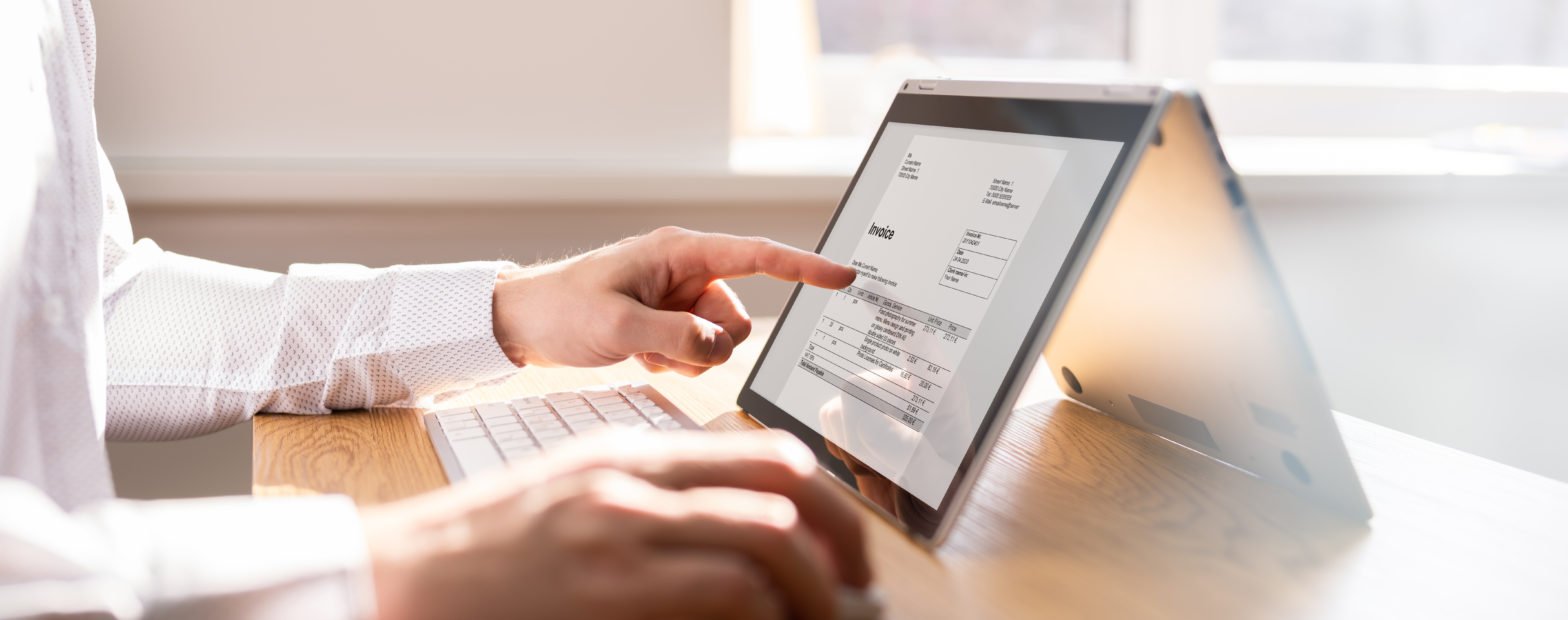
![Guide to Priority Pass Lounges at PDX – Top Things To Know [2024]](https://stagingwp.uthrive.club/wp-content/uploads/2024/11/Guide-to-Priority-Pass-Lounges-at-PDX-Top-Things-To-Know-2024-1024x600.jpg)
![Guide to Las Vegas Priority Pass Lounges – Top Things to Know [2024]](https://stagingwp.uthrive.club/wp-content/uploads/2024/11/Guide-to-Las-Vegas-Priority-Pass-Lounges-Top-Things-To-Know-2024-1024x600.jpg)
![Guide to Priority Pass SFO – Lounges and Restaurant Options at San Francisco International Airport [2024]](https://stagingwp.uthrive.club/wp-content/uploads/2024/11/Guide-to-Priority-Pass-SFO-Lounges-Restaurants-at-SFO-1024x599.jpg)
![Chase Sapphire Lounge LGA: Review & Updates [2024]](https://stagingwp.uthrive.club/wp-content/uploads/2024/11/Chase-Sapphire-Lounge-LGA-Review-Updates-2024-1024x600.jpg)


